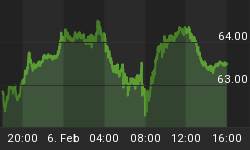The Bank of England (BoE), the European Central Bank (ECB), and Sweden's Riksbank all slashed their policy interest rates this morning, and all cited the same reasons - that demand conditions have deteriorated markedly, and that inflation is likely to undershoot their respective medium-term targets. Even after the drama of this morning's moves, rates are likely to go lower in 2009, particularly in the Euro-zone.
The Riksbank led off the day with the most aggressive move, slashing its repo rate a whopping 175bps to 2.0%. Only three months ago the Swedish bank was fretting about inflation and hiked its policy rate 25bps to 4.75%. Since then, the world has changed. As the Riksbank put it this morning, there has been an "unexpectedly rapid and clear deterioration in economic activity since October." The repo rate has been lower in recent years - at 1.50% in the second half of 2005 - but today's move was the biggest interest rate shift in Sweden since the repo rate was introduced in 1994, and the largest policy cut since September 1992, when the then-marginal rate was slashed by 450bps in the midst of a financial crisis. The bank said it expected the repo rate to remain at 2.0% through 2009, but if current inflation and growth trends continue, further easing is likely in the first half of next year.
Chart 1
Next to announce was the BoE, which lopped 100bps off its base rate, taking it to 2.0%. Again, the headline writers have rushed to make the historical comparisons: The last time rates were this low was back in 1951; at 2.0%, the policy rate is now effectively equal to its lowest since the BoE was founded in 1694; the last time the bank cut from 3.0% to 2.0% was October 1939 as WW2 was getting underway. In its subsequent statement, the bank emphasized that the economic downturn has gathered pace and that demand is now so weak there is a "substantial risk" of undershooting the 2.0% CPI inflation target. It also warned that "further measures" might be needed to return lending to normal levels. The minutes of today's meeting will be released December 17, and may give some sense of whether the policy makers envisage even lower rates in 2009. For now, the comment about "further measures" suggests the bank is deeply concerned about renewed problems in the interbank market.
Chart 2
After these dramatic moves, the ECB's 75bp reduction in its refi rate was almost bound to disappoint, even though it was the largest easing in the bank's ten-year history and came on top of two previous 50bp cuts. In his subsequent press briefing, Governor Trichet noted that the reduction was a consensus - i.e., not unanimous, implying that some members are still hesitant about the effectiveness of marked easing. Trichet also spoke of "exceptional uncertainty," the recent intensification and broadening of market tensions, and the likelihood that domestic demand will be "very sluggish" in coming quarters. And, he noted that the ECB staff now project real GDP growth of around 1.0% in 2008, falling to between zero and -1.0% in 2009, with growth risks to the downside. Although the Governor would not be drawn on the outlook for rates next year, a negative growth forecast all-but guarantees further easing in Q1 2009.
Chart 3















